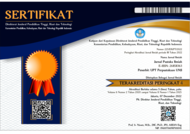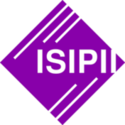IDENTITAS DIRI DALAM POLITIK MASYARAKAT VIRTUAL SEBUAH TINJAUAN TENTANG ANONIMITAS
Abstract
virtual society, and their relationship with self-identity reflected in current anonymity
on social media. This article uses qualitative research methods, through existing
observation and literature studies. Technological advances form a new world called
the virtual world. The concept of identity in virtual society is a difference of opinion
between destitopians, neofuturists and technicians. The presence of this virtual world
makes people free to become anonymous or people without identity. In the political
contestation of anonymity can give the public the freedom to argue, while on the other
hand anonymity can have a negative impact which can lead to conflict.
Keywords
Full Text:
PDFReferences
This article aims to examine the interrelationships between politics that exist in virtual society, and their relationship with self-identity reflected in current anonymity on social media. This article uses qualitative research methods, through existing observation and literature studies. Technological advances form a new world called the virtual world. The concept of identity in virtual society is a difference of opinion between destitopians, neofuturists and technicians. The presence of this virtual world makes people free to become anonymous or people without identity. In the political contestation of anonymity can give the public the freedom to argue, while on the other hand anonymity can have a negative impact which can lead to conflict. Keywords: Anonymity, Virtual Society, politics M. Chawki. 2006. Anonymity in Cyberspace: Finding the Balance between Privacy and Security. Droit-Tic, Juill M. Chawki. 2006. Anonymity in Cyberspace: Finding the Balance between Privacy and Security. Droit-Tic, Juill: MacDougall, . (1958) Curtis D. Hoaxes. Dover. Manuel Castells, 2009. Communication Power. UK: Oxford University Press, Marjorie Ferguson. 2005. The Mythology about Globalization. Dalam Mc Quail, Denis, et al (Eds.). Communication Theory & Research. London: Sage Publications. Martin Lister, et al. (2009) New Media: A Critical Introduction. New York: Routledge, Michel Foucault, 2000. Seks dan Kekuasaan, Terj. S. H. Rahayu. Jakarta: Gramedia. Nurul Hasf dkk. (2017) Anonimitas di Media Sosial: Sarana Kebebasan Berekspresi atau Patologi Demokrasi?. Jurnal Ilmu Komunikasi, Volume 15, Nomor 1, Januari - April. 28-38 Obar, Jonathan A.; Wildman, Steve (2015). “Social media definition and the governance challenge: An introduction to the special issue”. Telecommunications policy. 39 (9) Ploug, Thomas. 2009. Ethics in Cyberspace How Cyberspace May Influence Interpersonal Interaction. London: Springger. Seno Joko Suyono, 2002. Tubuh Yang Rasis. Yogyakarta: Pustaka Relajar,. Wilhem, Antony G. (2000) Democracy in the Digital Age: challenges to political life in cyberspace, (London: Routledge) Yaman Akdeniz. 2002. Anonymity, Democracy, and Cyberspace. Social Research: 69(1).
DOI: https://doi.org/10.20961/jpi.v4i1.33798
Refbacks
- There are currently no refbacks.




.png)
.png)









1.jpg)
